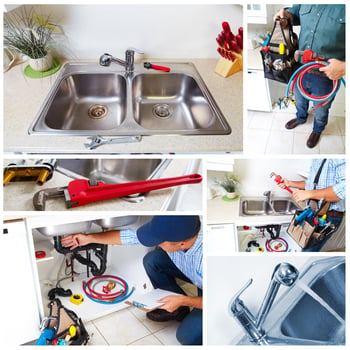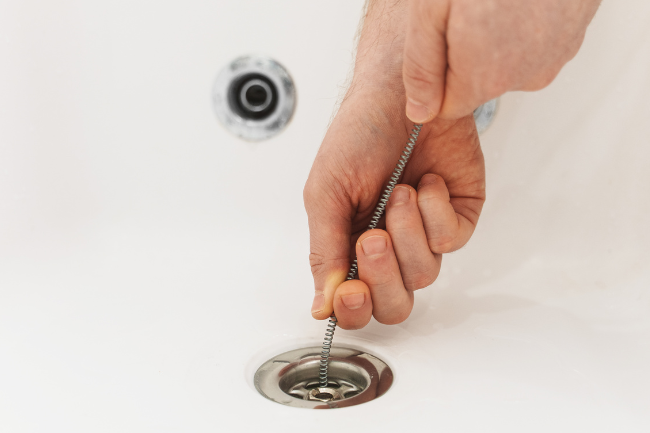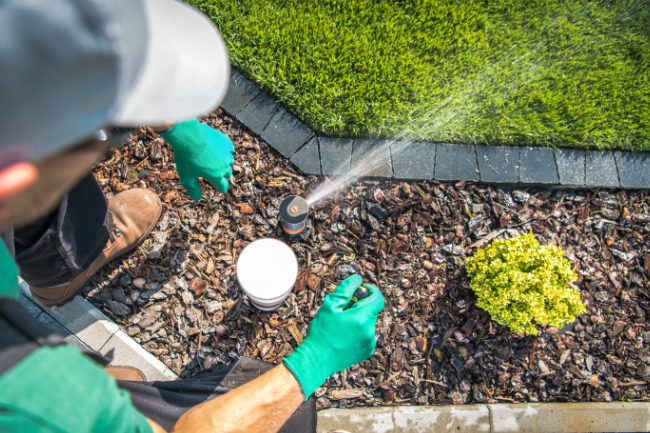DIY Versus Professional Plumbing Repair
Posted by William Heinselman on
 If you own a home or property, there’s a good chance you’ve had to dabble in DIY plumbing repair from time to time. Things like leaking shower heads, minor drain clogging and faucet residue are all easy problems you can fix on your own with a little know-how. That being said, however, there will always be times in which professional intervention is necessary.
If you own a home or property, there’s a good chance you’ve had to dabble in DIY plumbing repair from time to time. Things like leaking shower heads, minor drain clogging and faucet residue are all easy problems you can fix on your own with a little know-how. That being said, however, there will always be times in which professional intervention is necessary.
There are certain plumbing problems you should never take on by yourself, as doing so could likely make the problem worse. Replacing copper pipes or removing entire fixtures can pose greater challenges than some homeowners expect. Before taking on any DIY plumbing tasks, evaluate your own skills and the equipment you have on hand; try to gauge if the job is a relatively minor, straightforward fix (something you can handle entirely on your own), or if it calls for some professional attention.
Plumbing Tasks Where DIY is Applicable
For everyday plumbing repairs and upgrades, you can actually do much of the work on your own, without hiring a professional plumbing service. This includes tasks like:
- Replacing toilet flappers, chains and other hardware (which are available at home improvement stores)
- Clearing common drain clogs, such as those caused by hair or residual buildup
- Replacing washing machine hoses
- Eliminating dishwasher clogs
- Upgrading shower heads and sink faucets
As long as the plumbing task at hand is relatively straightforward, and you have the tools and know how to complete the job, DIY repairs are an affordable option to consider. It’s pretty likely that you can handle minor drain unclogging on your own. What about more extensive work, like renovating bathrooms and rerouting utility/pipe lines within walls? If you decide to pursue DIY repairs, even minor hiccups can turn into huge problems very quickly.
Situations Where Professional Repair is Required
Worst case scenario, you may slip up during DIY plumbing repair and not even realize it. Like unattended plumbing problems, unnoticed DIY errors can cost you thousands of dollars in remedial repair later on. Licensed plumbers go through the training and have the experience necessary to avoid these mistakes, and get the job done right the first time.
The following are common plumbing repairs that typically require professional assistance to some degree, if not for the entire job:
- Bathroom remodeling, or really any remodeling project in which plumbing lines or other utilities are involved. For one, there may be permits or codes involved when remodeling; by continuing with the project, you may end up compromising the safety of your home unknowingly. Also, accidentally damaging utility lines and pipes can cost you thousands if you’re not careful.
- Sprinkler renovation, whether it’s installing new sprinkler lines or caring for old ones. Professional plumbers can ensure that water supply reaches each and every sprinkler head on your lawn, and that your new or repaired sprinklers are in accordance with any relevant permits.
- Large fixture repair or replacement. We’re not talking about upgrading your shower heads, but rather replacing entire water heater units, tubs and internal plumbing. Expert plumbers, in these cases, know which walls or utility lines will have to be moved to repair plumbing at the lowest cost.
- Pipe or sewer repairs. These should come as no-brainer. If your underground sewer or lateral pipes have been damaged in any way, reach out to a professional plumber in your area immediately. Cured-in-place, trenchless lining repairs may be able to resolve the problem at lower cost that dig-and-replace methods, but only if you act quickly.
The DIY versus professional plumbing debate really comes down to one factor: how comfortable you are handling the task at hand. While a seasoned homeowner may be able to renovate their own bathrooms without professional assistance, not everyone can tackle such a project on their own. Only take on DIY projects if you’re sure you can see them through without error; otherwise, contact the pros and make sure the job is done right.
Topics: Home Plumbing, DIY







